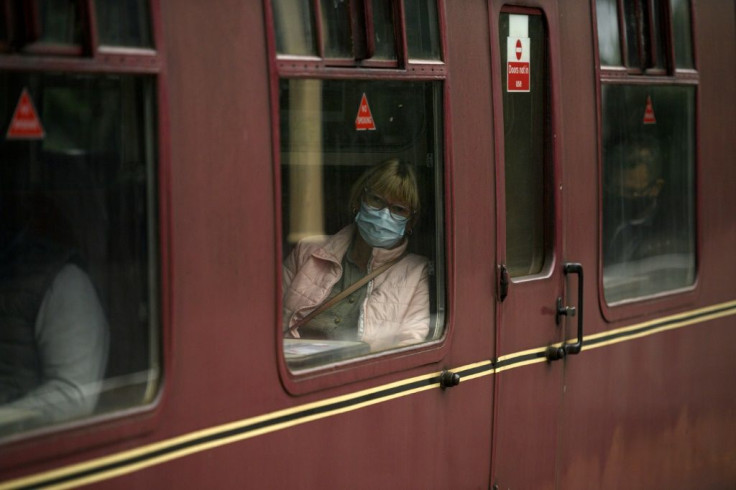Britain Overhauls Virus-hit Privatised Rail Sector
Britain launched Monday a radical overhaul of its coronavirus-plagued privatised rail sector that will see franchises replaced with concessions subject to tougher scrutiny and greater state involvement.
Train services will no longer be managed by franchises, which handed their management to private operator companies, and these will be replaced by concession-style agreements.
"Ministers today ended rail franchising after 24 years as the first step in bringing Britain's fragmented network back together. The new system will create a simpler, more effective structure and will take shape over the coming months," the Department for Transport (DfT) said in a statement.
While Britain's rail tracks remain in state hands, the trains are run by mostly private companies enjoying large government subsidies.
But Prime Minister Boris Johnson's Conservative government decided in March to take on rail franchise holders' revenue and cost risks as the Covid-19 pandemic decimated demand. The move was part of emergency measures that cost ?3.5 billion ($4.5 billion, 3.8 billion euros) according to media reports.
Transport Secretary Grant Shapps declared Monday that the current privatised rail model was not working in the current climate, as many commuters and travellers stay at home.
"The model of privatisation adopted 25 years ago has seen significant rises in passenger numbers, but this pandemic has proven that it is no longer working," Shapps said.
The new system will keep the best elements of the private sector but add better direction and accountability, he added.

"Our new deal for rail demands more for passengers. It will simplify people's journeys, ending the uncertainty and confusion about whether you are using the right ticket or the right train company," said Shapps.
The Department for Transport said it would maintain the current "significant" levels of state support under the new Emergency Recovery Management Agreements (ERMAs), but aimed to achieve savings in the long run.
"Until passenger numbers return, significant taxpayer support will still be needed, including under the transitional contracts announced today. But the reforms will enable substantial medium and longer-term savings for taxpayers," the DfT noted.
Rail operators will still be paid management fees for running services under the ERMA system -- but these will be lower than under emergency measures that were implemented in March.
Keith Williams, a former British Airways boss commissioned by the government to carry out a "root and branch" review of the rail sector, welcomed the new strategy.
"These new agreements represent the end of the complicated franchising system, demand more from the expertise and skills of the private sector, and ensure passengers return to a more punctual and co-ordinated railway," he said.
However, trade unions slammed the move, which is the first major sector-wide overhaul since the Conservatives privatised British Rail back in the mid-1990s.
"This announcement should now force the government's hand and lead them to face up to what has been staring them in the face for the best part of three decades -- that public ownership is the only model that works and can steer us through a crisis such as Covid-19," said Rail, Maritime and Transport union general secretary Mick Cash.
© Copyright AFP {{Year}}. All rights reserved.





















